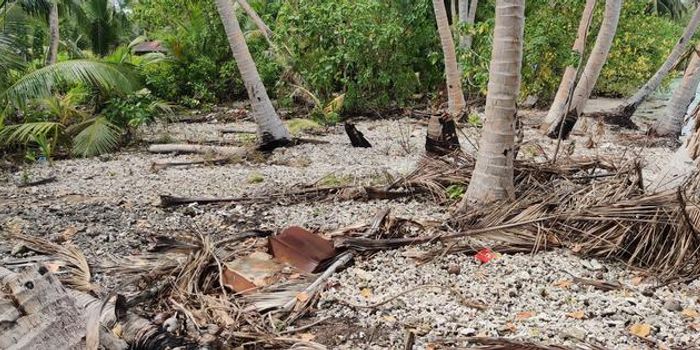How Climate Change Influenced the Evolution of the Western Spotted Skunk
Climate change can impact our environment in various ways, and as we’ve experienced first-hand with climate change as byproduct of human activity, it has the potential to drastically change the ecology of natural environments.
Reporting in the journal Ecology and Evolution, researchers argue how climate change probably had a very real impact on the modern evolution of the Western spotted skunk.
Image Credit: Robert Heischman – robbobert/DeviantArt
To determine this, they took DNA samples from 97 test subjects in various populations throughout the Western United States and Mexico. Both locations are known for hosting the creature’s natural habitat. They then compared these samples to one another to find out more about their differences.
The results revealed that there are at least three different clades of Western spotted skunk. The researchers note how the different clades were a result of geographical separation. This can happen if one population is separated from another by something massive, like say, a mountain range.
When one clade stays away from another clade long enough, clade 1 will evolve and develop genetic changes unique to surviving in their own natural habitat while clade 2 will evolve develop genetic changes to thrive in their own.
Related: What makes skunk spray so noxious?
It’s these small differences that can tell a story about where the clade originated from, and that’s precisely how the researchers were able to tell a story about how climate change impacted each of the three studied clades.
"By analyzing western spotted skunk DNA, we learned that Ice Age climate change played a crucial role in their evolution," says lead author Adam Ferguson, Collections Manager of Mammals at The Field Museum in Chicago and affiliate of Texas Tech University. "Over the past million years, changing climates isolated groups of spotted skunks in regions with suitable abiotic conditions, giving rise to genetic sub-divisions that we still see today."
Climate change has the power to completely change a planet’s geographical features, given enough time. Back in the day of the Ice Age, that’s exactly what happened; things were changing rapidly, and this would explain how the skunk populations ended up separated into the three different clades we observe today.
Related: Climate change impacts koala bears
"Western spotted skunks have been around for a million years, since the Pleistocene Ice Age," Ferguson continued.
"During the Ice Age, western North America was mostly covered by glaciers, and there were patches of suitable climates for the skunks separated by patches of unsuitable climates. These regions are called climate refugia. When we analyzed the DNA of spotted skunks living today, we found three groups that correspond to three different climate refugia. That means that for spotted skunk evolution, climate change appears to have been a more important factor than geographical barriers."
The study serves as an important indicator of how climate change can impact an animal species. Some animal types are not well-observed in the face of climate change, and this study could help inspire more research in this department.
Although we think of climate change today as human-induced, this is only partially correct. Climate change has been a real thing for millions of years, but man’s way of life on this planet has only acted as a catalyst for climate change and sped up its effects exponentially.
By taking a moment to understand how climate change has affected animal species in the past, we might be able to get a glimpse into what the future might look like, as well as any changes we could make to save some animals from going extinct.
Source: Science Daily









